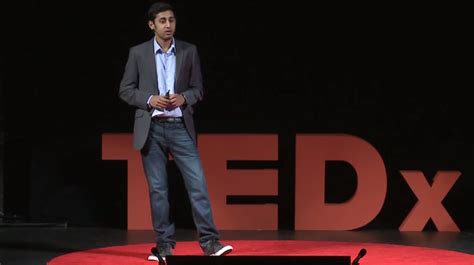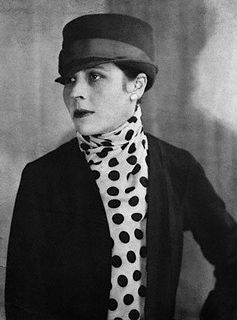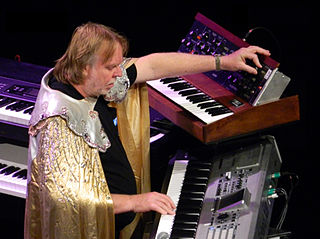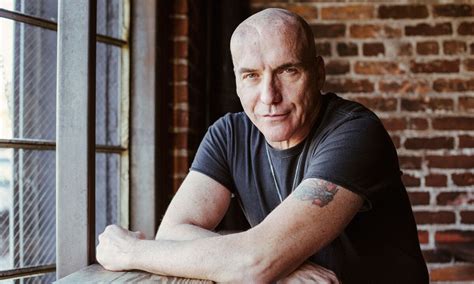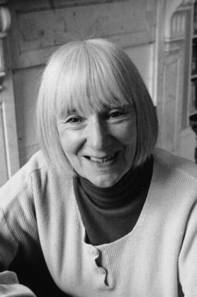A Quote by Kary Mullis
My mother often mailed me articles from 'Reader's Digest' about advances in DNA chemistry. No matter how I tried to explain it to her, she never grasped the concept that I could have been writing those articles, that something I had invented made most of those DNA discoveries possible.
Related Quotes
One thing I did have under my belt was, my mother lost her mother when she was 11. She mourned her mother her whole life and made my grandmother seem present even though I never met her. I couldn't imagine how my mom could go on but she did, she took care of us, she worked two jobs and had four children. She was such a good example of how to conduct oneself in a time of grief. When I lost my husband, I tried to model myself as much as I could on her.
She was nervous about the future; it made her indelicate. She was one of the most unimportantly wicked women of her time --because she could not let her time alone, and yet could never be a part of it. She wanted to be the reason for everything and so was the cause of nothing. She had the fluency of tongue and action meted out by divine providence to those who cannot think for themselves. She was the master of the over-sweet phrase, the over-tight embrace.
The casting director on the movie made me aware of her. She told me what to watch Starter For Ten, which I did and thought she was great in. She was just so charming and beautiful. But I felt she could probably look plain if we tried. And when I subsequently met with her, I was so charmed by her vulnerability and sweetness. Those were two qualities that were the most important for that character.
She smiled. She knew she was dying. But it did not matter any longer. She had known something which no human words could ever tell and she knew it now. She had been awaiting it and she felt it, as if it had been, as if she had lived it. Life had been, if only because she had known it could be, and she felt it now as a hymn without sound, deep under the little whole that dripped red drops into the snow, deeper than that from which the red drops came. A moment or an eternity- did it matter? Life, undefeated, existed and could exist. She smiled, her last smile, to so much that had been possible.
Here's an easy one: "Race is an entirely social construct." No, it's partially one, depending on how any given society seeks to define it and its implications. But there are basic things such as skin color and hair texture. Even a Martian who'd had no exposure to human "social constructs" would be able to spot those differences. But no Martian, as hard as he tried, could point at a "culture" or to "equality." Those are the social constructs. Those can't be measured in the same way as human DNA.
The idea of the book ["The Japanese Lover"] came in a conversation that I had with a friend walking in the streets of New York. We were talking about our mothers, and I was telling her how old my mother was, and she was telling me about her mother. Her mother was Jewish, and she said that she was in a retirement home and that she had had a friend for 40 years that was a Japanese gardener. This person had been very important in my friend's upbringing.
Taking a look back, one big reqret is, I left Harvard with no real awareness of the awful inequities in the world. The appalling disparities of health and wealth and opportunity that condemned millions of people to the lives of despair. I learned a lot here at Harvard about new ideas and economics, and politics. I got great exposure to the advances being made in the sciences. But humanities greatest advances are not in its discoveries, but in how those discoveries are applied to reduce inequity.
My fourth mother, my godmother, she passed away a couple years ago - her name was Gwen. She was the theater director over at the gym where I grew up and learned about all those awesome things I told you about already. She was the one who taught me terms like "upstage" and "downstage," all those technical things about the art of what I do - how to breathe what I see, how to move. They were all her tactics, not anything learned or given to me through a theory, but rather by her natural abilities.
Pauline kept a scrapbook into which she pasted important articles that she had cut out of the newspapers. These were about the courageous deeds that had been done by people even if they only had one leg or couldn't see or had been dropped on their heads when they were babies. 'It's to make me brave,' she'd explained to Annika.
She had always been a reader… but now she was obsessed. Since her discovery of the book hoard downstairs from her job, she’d been caught up in one such collection of people and their doings after the next…The pleasure of this sort of life – bookish, she supposed it might be called, a reading life – had made her isolation into a rich and even subversive thing. She inhabited one consoling or horrifying persona after another…That she was childless and husbandless and poor meant less once she picked up a book. Her mistakes disappeared into it. She lived with an invented force.
And for all those years, we never talked about the disaster at the recital or my terrible accusations afterward at the piano bench. All that remained unchecked, like a betrayal that was now unbreakable. So I never found a way to ask her why she had hoped something so large that failure was inevitable. And even worse, I never asked her what frightened me the most: Why had she given up hope?



